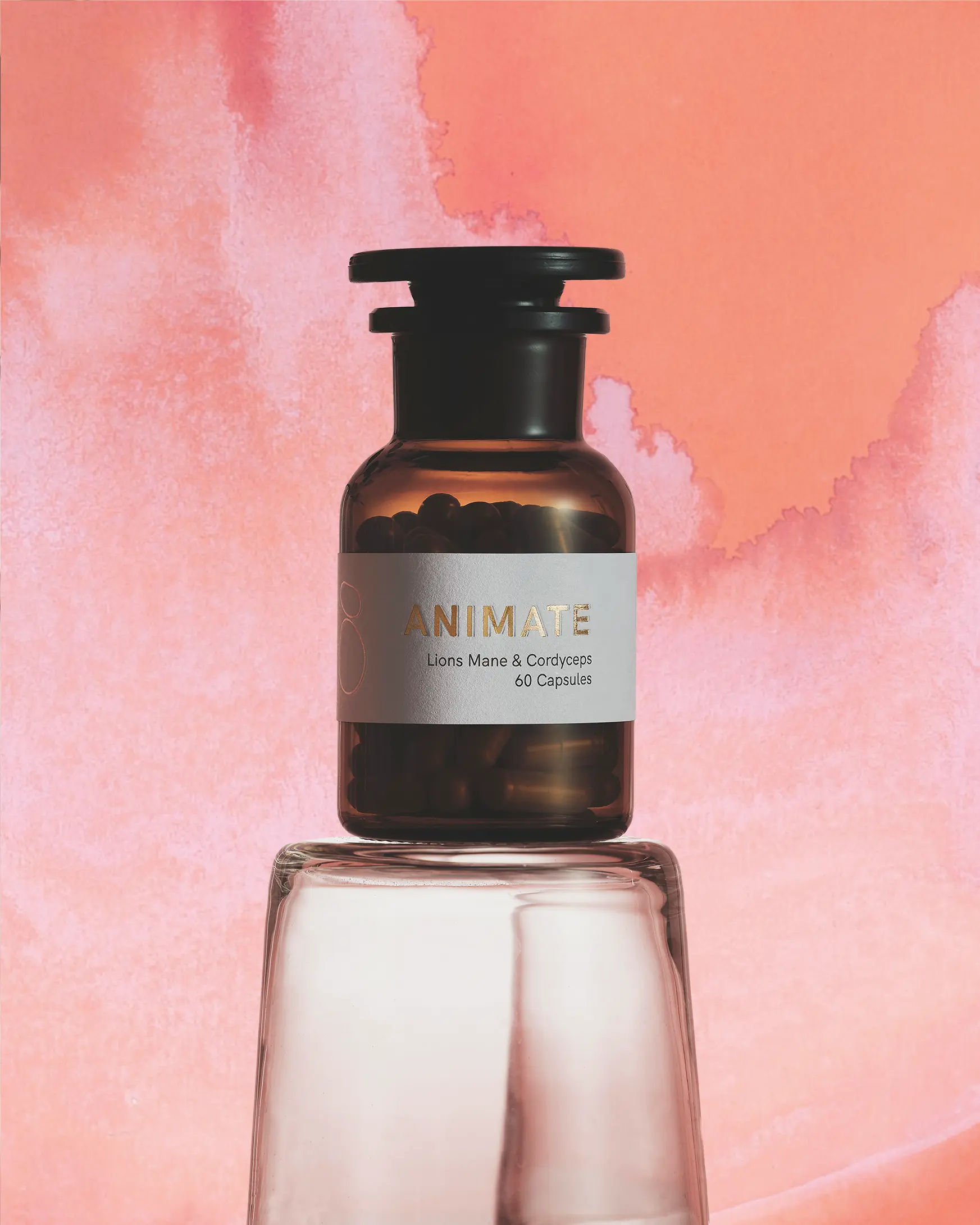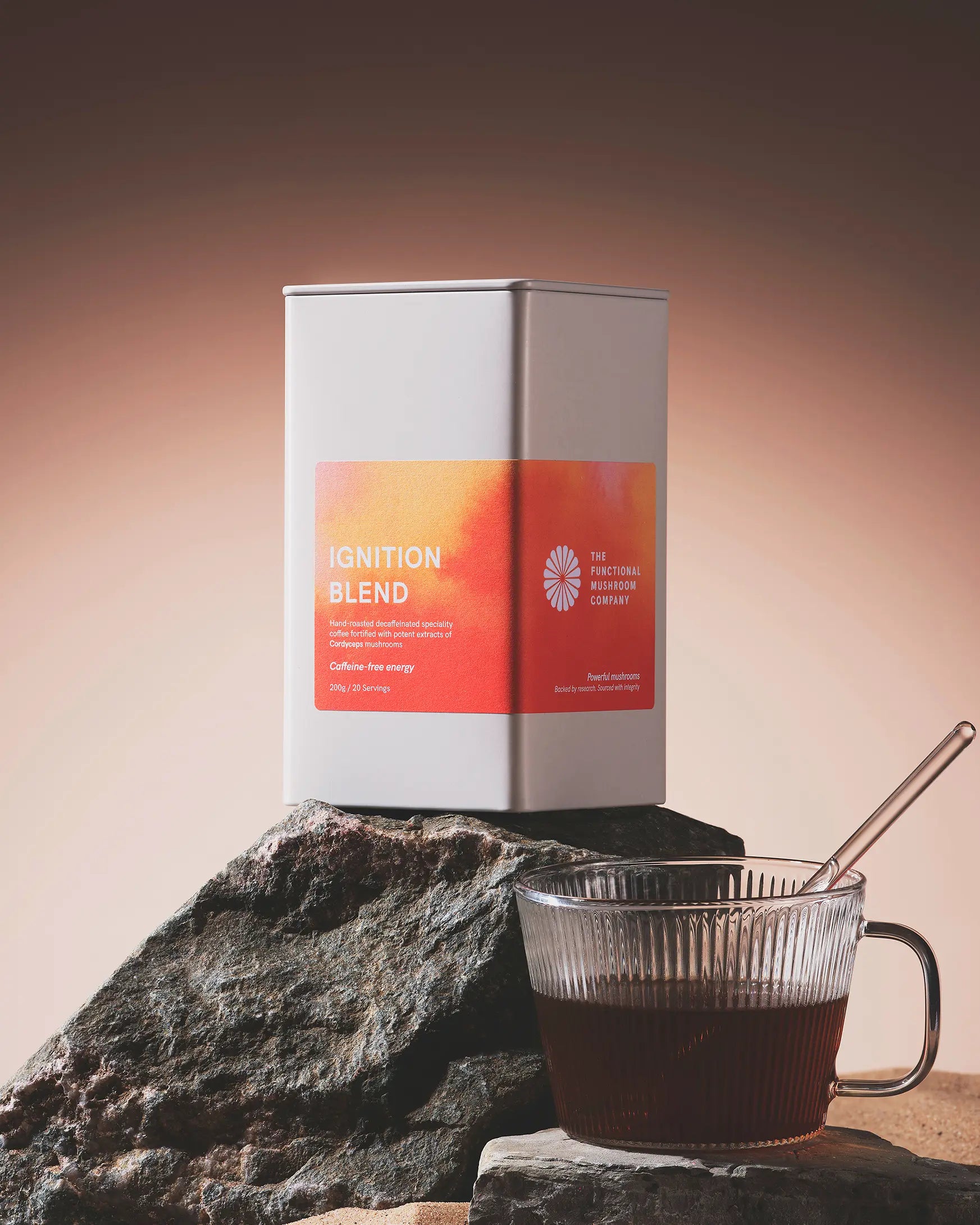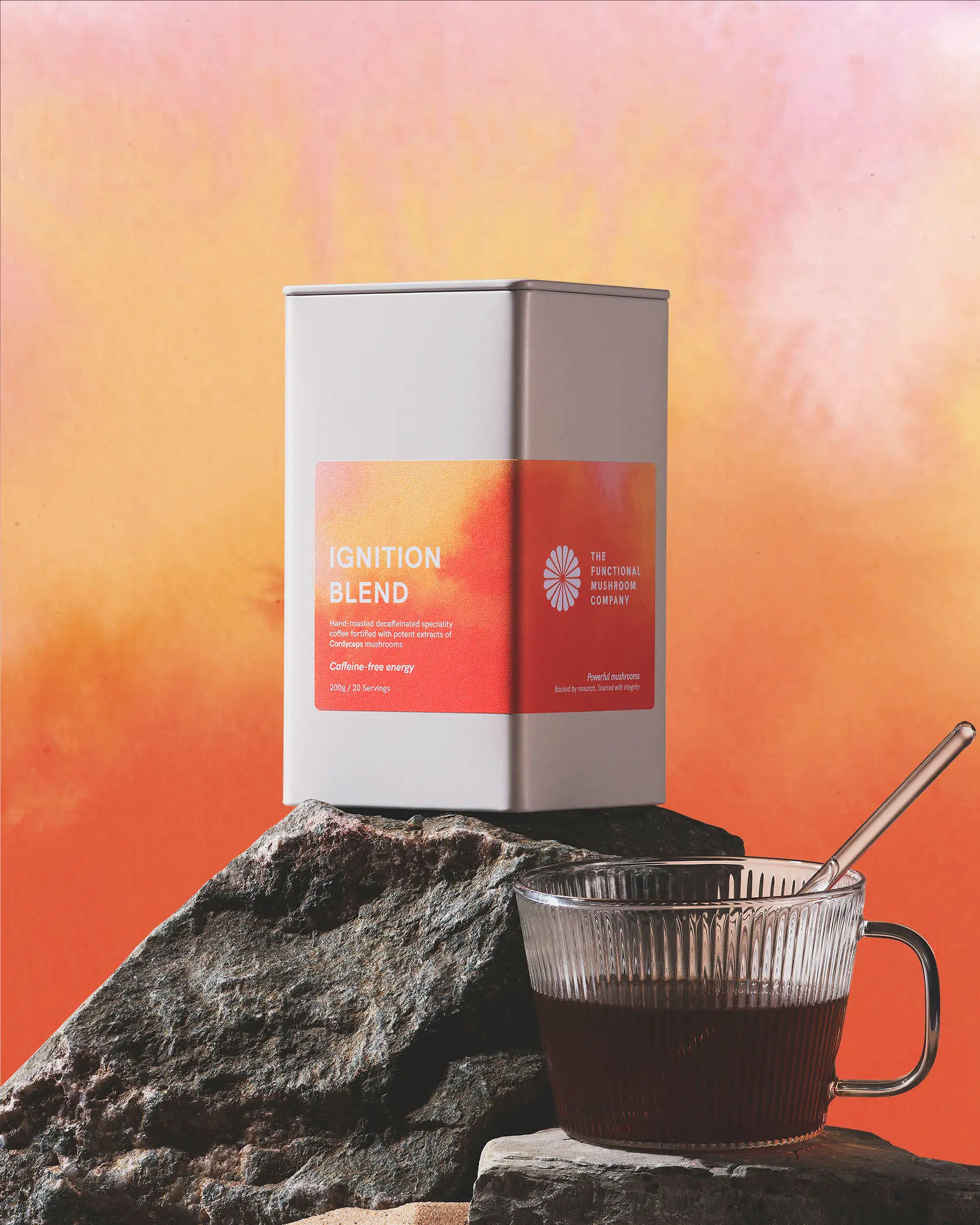Reishi and Heart Health: Understanding "King of Mushrooms" Cardiovascular Benefits

In the realm of traditional Chinese medicine, Reishi (Ganoderma lingzhi) has long been revered as the "King of Mushrooms" for its remarkable ability to support overall health and well-being. As modern science delves deeper into the complexities of this ancient medicinal mushroom, a fascinating picture emerges of its potential to promote heart health through a intricate interplay of biological mechanisms.
Key Takeaways
- Regulates cholesterol, blood pressure, and blood sugar - a trifecta of heart-protective effects
- Antioxidant and anti-inflammatory properties shield the cardiovascular system from damage
- Improves endothelial function and reduces atherosclerotic plaque formation for healthier arteries
- High-quality Reishi supplements, part of a heart-healthy lifestyle, support cardiovascular well-being
Table of content
Reishi and Cholesterol Regulation
One of the most intriguing aspects of Reishi's heart-health benefits lies in its ability to regulate cholesterol levels. In a randomised, double-blind, placebo-controlled study, patients with high cholesterol who consumed Reishi extract experienced significant reductions in total cholesterol, LDL ("bad") cholesterol, and triglycerides compared to the placebo group. The mechanisms behind this effect are thought to involve the bioactive compounds in Reishi, such as ganoderic acids and triterpenes, which inhibit the activity of HMG-CoA reductase, a key enzyme involved in the synthesis of cholesterol in the liver.
Additionally, these compounds may promote the excretion of cholesterol from the body by enhancing the expression of LDL receptors in the liver, which facilitate the uptake and removal of LDL cholesterol from the bloodstream.
Reishi's Impact on Blood Pressure
Reishi has also been found to have a positive impact on blood pressure, another crucial factor in maintaining a healthy heart. A meta-analysis of randomised controlled trials concluded that Reishi supplementation significantly decreased both systolic and diastolic blood pressure in individuals with hypertension.
This effect may be mediated by Reishi's ability to modulate the renin-angiotensin system, a complex network of hormones and enzymes that regulate blood pressure by controlling the constriction and dilation of blood vessels. Specifically, the triterpenes and polysaccharides in Reishi have been shown to inhibit the activity of angiotensin-converting enzyme (ACE), which is responsible for the production of angiotensin II, a potent vasoconstrictor. By reducing the levels of angiotensin II, Reishi may help to relax and widen blood vessels, thereby lowering blood pressure and reducing the workload on the heart.

Blood Sugar Control and Diabetes
Blood sugar control is another key piece of the heart-health puzzle, as diabetes is a significant risk factor for cardiovascular disease. Several studies have investigated Reishi's hypoglycemic effects, with promising results. In a placebo-controlled trial, Reishi polysaccharide extract improved insulin sensitivity and reduced fasting blood glucose in patients with type 2 diabetes.
Insulin, a hormone produced by the pancreas, plays a crucial role in regulating blood sugar levels by facilitating the uptake of glucose into cells for energy production. Reishi's ability to enhance insulin sensitivity suggests that it may help improve glucose metabolism by increasing the responsiveness of cells to insulin's signal. This, in turn, may reduce the burden on the pancreas to produce more insulin to compensate for insulin resistance.
Furthermore, animal studies indicate that Reishi may protect pancreatic beta cells, the insulin-producing cells, from oxidative stress - a type of cellular damage caused by an imbalance between the production of reactive oxygen species and the body's ability to neutralise them. Just as an umbrella protects us from the damaging effects of rain, Reishi's antioxidant compounds may shield pancreatic beta cells from the harmful effects of oxidative stress, helping to maintain their function and integrity.
Anti-Inflammatory and Antioxidant Properties
Inflammation and oxidative stress are two interconnected processes that contribute significantly to the development of cardiovascular diseases. Chronic inflammation, characterised by the persistent activation of the immune system, can damage the endothelium, the inner lining of blood vessels, and promote the formation of atherosclerotic plaques. Oxidative stress, on the other hand, occurs when there is an excess of reactive oxygen species, which can damage cellular components and contribute to inflammation.
Reishi's anti-inflammatory and antioxidant properties have been extensively studied, and the results suggest that this medicinal mushroom may help combat these harmful processes. In vitro studies have demonstrated that Reishi polysaccharides and triterpenes, two of its key bioactive compounds, inhibit the production of pro-inflammatory cytokines such as TNF-α and IL-6, which are involved in the initiation and progression of inflammatory responses. These compounds interact with immune cells, such as macrophages and T cells, to modulate their activity and reduce the production of inflammatory mediators.
Moreover, Reishi's antioxidant compounds, including polyphenols and peptides, have been shown to scavenge free radicals and enhance the activity of antioxidant enzymes like superoxide dismutase and catalase. These enzymes act as the body's internal defence system against oxidative stress, much like how a team of skilled firefighters works to extinguish a blaze and prevent further damage. By neutralising reactive oxygen species and protecting cells from oxidative damage, Reishi's antioxidant compounds may help to maintain the integrity of blood vessels and reduce the risk of cardiovascular disease.
Reishi's Effects on Endothelial Function and Atherosclerosis
The cardioprotective effects of Reishi extend beyond its impact on individual risk factors. Studies have examined Reishi's ability to improve endothelial function and combat atherosclerosis, the buildup of plaque in the arteries. The endothelium plays a critical role in maintaining vascular health by regulating blood clotting, immune function, and the tone and elasticity of blood vessels. Endothelial dysfunction, characterised by a reduction in the production of nitric oxide and an increase in inflammation and oxidative stress, is a key early event in the development of atherosclerosis.
In a randomised controlled trial, high-risk cardiovascular patients who consumed Reishi extract experienced improved endothelial function and reduced markers of endothelial damage compared to the placebo group. The polysaccharides in Reishi have been shown to stimulate the production of nitric oxide in endothelial cells, which helps to relax and widen blood vessels, improving blood flow and reducing the risk of plaque formation.
Furthermore, animal studies have shown that Reishi can inhibit the development of atherosclerotic plaques by reducing lipid accumulation and inflammation in the arterial wall. The triterpenes and polysaccharides in Reishi may interact with the cells involved in plaque formation, such as macrophages and smooth muscle cells, to reduce their uptake of oxidised LDL cholesterol and inhibit their proliferation and migration, respectively.
Future Research and Considerations
While the existing research on Reishi and cardiovascular health is promising, it is important to note that most studies have been conducted in vitro, in animal models, or with relatively small human cohorts. To fully elucidate the mechanisms behind Reishi's cardiovascular benefits and determine the optimal dosage, large-scale, long-term clinical trials are needed. Nevertheless, the available evidence suggests that incorporating Reishi mushroom into a heart-healthy lifestyle, alongside a balanced diet and regular exercise, may provide valuable support for cardiovascular wellness.
When considering the use of Reishi supplements for heart health, it is crucial to choose high-quality products from reputable sources. Opt for supplements that use the fruiting body of Ganoderma lingzhi, are standardised for key bioactive compounds like polysaccharides and triterpenes, and have undergone rigorous testing for purity and potency. As with any dietary supplement, consulting with a healthcare professional before starting a new regimen is always recommended, especially for those with pre-existing cardiovascular conditions or taking medications.
Reishi Heart Health: Conclusions
The "King of Mushrooms," Reishi, has shown significant potential in supporting cardiovascular health through its multifaceted effects on cholesterol levels, blood pressure, blood sugar, inflammation, oxidative stress, and endothelial function. As scientific research continues to unravel the complex mechanisms behind Reishi's cardioprotective properties, this ancient medicinal mushroom may prove to be a valuable ally in the modern quest for optimal heart health. By incorporating Reishi into a comprehensive, heart-healthy lifestyle, we may harness the power of this fascinating fungus to promote cardiovascular well-being and reduce the risk of heart disease.








